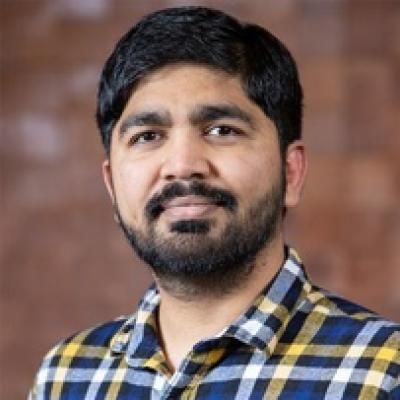Ravi Karkar Receives NSF CAREER Award to Improve Personal Health Tracking Technology Design
Content
Manning College of Information and Computer Sciences (CICS) Assistant Professor Ravi Karkar has received an NSF CAREER award in support of his work to develop self-experimentation technologies, empowering individuals to make more informed decisions about their personal health and well-being.
Despite the rapidly growing $54 billion market for health trackers promising personalized health insights, many users struggle to transform their collected data into meaningful health decisions. The proposed research aims to address this gap by transforming self-experimentation—where individuals use personal data to answer health-related questions such as identifying triggers for chronic conditions or optimizing lifestyle factors—from a complex practice requiring advanced expertise to an accessible, practical approach for the general population.
"Currently, self-experimentation is largely limited to individuals who possess specialized knowledge and substantial resources. Even answering seemingly straightforward questions is not well-supported by mainstream health tracking technologies — Is coffee or milk the trigger for my irritable bowel syndrome symptoms? Does taking aspirin affect my menstrual flow? Will exercising in the evening improve my sleep quality?" explains Karkar. "My goal is to democratize this practice, enabling everyday users to conduct meaningful experiments, analyze their results effectively, and make informed decisions about their health.”
Through a systematic combination of theoretical exploration and practical applications, Karkar’s project will first assess the existing barriers and needs in self-experimentation across various health domains. He will then develop and validate innovative design patterns to simplify experiment selection, improve data robustness, and personalize communication of results through tailored visualizations and actionable recommendations.
"We plan to introduce a structured life-cycle model of self-experimentation that clearly defines each stage of the process," says Karkar. "This research isn't just theoretical—our evidence-based design innovations aim to significantly improve how people engage with their health data and ultimately lead to better health outcomes, especially for those managing chronic conditions."
Beyond individual benefits, Karkar’s research is hopeful for broader societal impacts, including improved management of chronic conditions and enhanced public engagement with health research, particularly in rural and underserved communities.
In the classroom, Karkar will integrate these advancements into his teaching, especially through his personal health informatics course. "I am particularly excited to involve undergraduate students in this research. Their perspectives are crucial to designing health technologies that work for diverse users in real-world situations," Karkar adds.
Karkar joined the CICS faculty in 2022 after earning his doctorate in computer science and engineering from the University of Washington. His research primarily focuses on designing tools that facilitate data-driven personal health management, collaborative medical care, and effective self-monitoring of chronic health conditions. He is also a co-author of “Deploying and Examining Beacon for At-Home Patient Self-Monitoring with Critical Flicker Frequency,” which received a SIGCHI 2025 Best Paper Award.
The CAREER Award is one of NSF's most prestigious awards supporting early-career faculty who exemplify the role of teacher-scholars through outstanding research, excellent education, and the integration of education and research.
